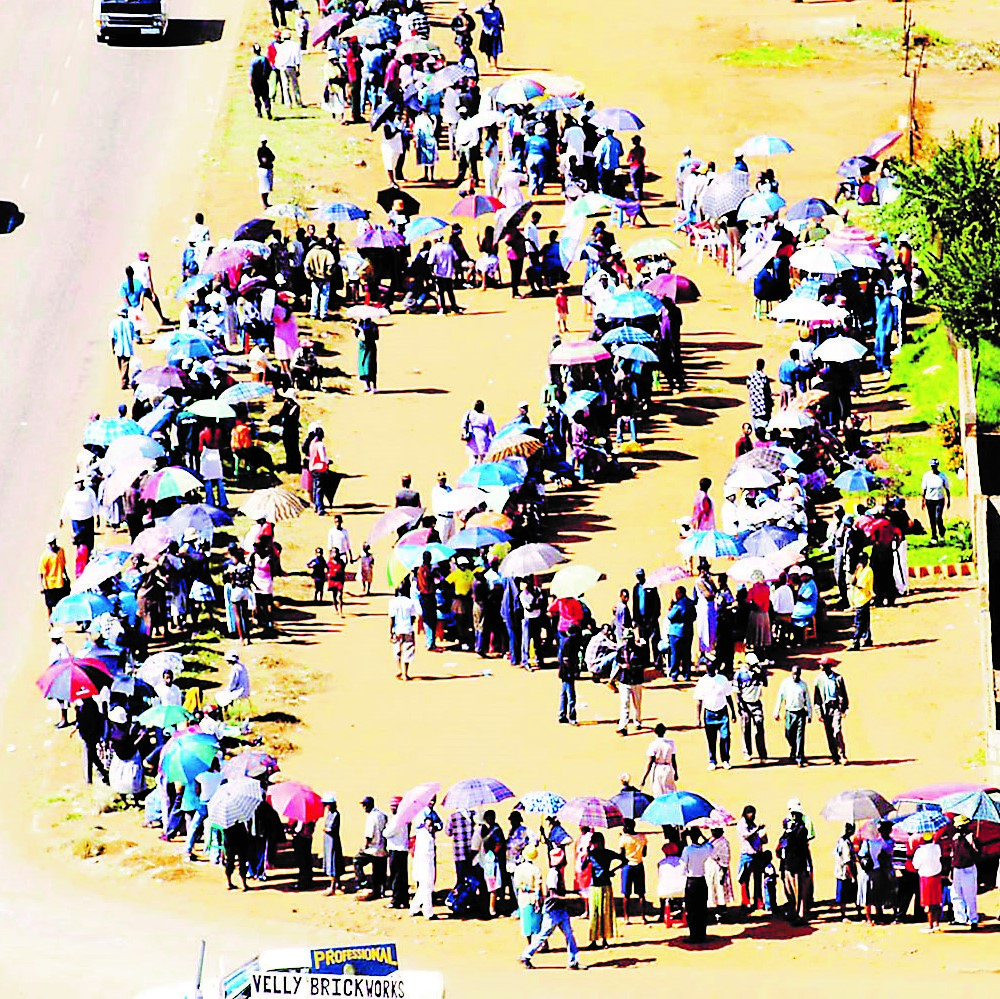
News

Remembering that first democratic election
JORDAN MOSHE
So says Audrey Coleman, recalling the first democratic election in 1994, the day we now celebrate as Freedom Day.
Coleman is a former member of the Detainees Parents Support Committee (DPSC) and the former national secretary of the Black Sash. Hers is just one of many recollections by community members of this auspicious day. They spoke to the SA Jewish Report about how they felt then and now.
In lockdown in her home this week, Coleman vividly recalls feeling a sense of liberation and great excitement in 1994.
However, looking back over time since then, she reflects that the legacy of apartheid left the newly elected government ill-equipped to take up its new role, a factor which contributed towards the corruption which has tainted the African National Congress (ANC).
“We were idealists, and it has been great shock to see corruption blossom,” she says. “However, I’m sure now, with Ramaphosa at the helm, we will come right, even after corona.”
Zev Krengel, the vice-president of the SA Jewish Board of Deputies, was involved in the National Peace Accord aimed at preventing violence around that time. Stationed in Thokoza, Katlehong, he found voters remarkably peaceful.
“It was unbelievable,” he recalls. “Warring residents of the hostels who had literally been killing each other ten days earlier were standing in the same queue. We monitored those lines for three days, and cast our votes at the end.
“Looking back, I don’t think people realise how amazing it was, and how it could have been.”
Jack Bloom, the Democratic Alliance’s Shadow Health MEC, voted at Athlone Girls High School in Observatory, where he was also a polling agent for the Democratic Party (DP). “It was exciting to vote in our first non-racial election, but also worrying because of the difficulties in counting the votes,” he says.
It was heart-breaking that the DP fared so poorly, he says, but the inauguration of Nelson Mandela at the Union Buildings was exhilarating.
“There was a lot of hope in the air that has dimmed 26 years later because of massive corruption and misgovernance. I think now of the opportunities lost to achieve genuine non-racism and prosperity for everyone.”
Like Krengel and Bloom, ANC stalwart Joy Coplan played a part in co-ordinating the election.
“Once [FW] De Klerk unbanned the ANC, we needed a structure to create an election,” she says. “People had the right to vote, yes, but we had to ensure they could exercise it. We worked hard to create wards and districts to enable people to vote.”
Coplan devoted herself to the suburbs of Johannesburg, forming branches in minority areas. She voted at Orange Grove High School, and remembers queues of people eagerly clutching their voting numbers in anticipation.
“We’ve made major progress since then, but still need to work to achieve the ideals of our first election. We are still working towards the reality envisioned by our leaders, and need to preserve their values.”
Holocaust survivor Don Krausz, who had watched police on motorbikes wield truncheons at African cyclists on their way to Alexandra, recalled the horrors of Nazi Germany while living in South Africa under the Nationalist Party. For this reason, the election was a landmark moment for him.
“As a survivor of four concentration camps, a death march, the murder of my father and 24 close members of my family, and having been selected for the gas chambers on three occasions which left me still needing treatment for post-traumatic stress disorder after 75 years, the experience of democracy was most welcome.”
Capetonians Marc Falconer and Milton Shain both vividly recall standing in line to vote.
“Although I well recall voting, I have no clear sense of my emotions at the time,” says Shain, the emeritus professor of history at the University of Cape Town. “However, I remember a frisson of pleasure standing in a long snaking line in Camps Bay with other South Africans – black and white, rich and poor.”
Falconer, the principal of Herzlia High School, had been in the country for only three days after having returned from living abroad for five years.
“I remember standing in a queue of people waiting to vote, the chatter and excitement and the sense of possibility, feeling that we were all riding on a wave of history that could take us almost anywhere.
“There was a sense of pride in a country that seemed to have done something quite incredible and was a flaming beacon to the world. A sense of pride in a man who we knew would be our leader, the incomparable Nelson Mandela, and that for the rest of our lives, we would remember these times. It is also true to say that many of us knew there would be hard times ahead.”
Marc Lubner, the chief executive of Afrika Tikkun, says that time stood still as he queued to vote at Houghton High School. “We were one as we stood in line,” he recalls. “The mark of a cross on a piece of paper represented a statement and an expression of freedom. Our country was ours.”
He admits that he cried as he stood in the ballot box, remembering that cry being a “washing” kind of cry, almost one of disbelief. “There was a sense of forgiveness, and an understanding of the fear that forced humans on all sides to act in ways that were senseless,” says Lubner.
“Freedom Day wasn’t just a day to forgive, but not to forget. It was a day we all bought into the belief of a Rainbow Nation.”




